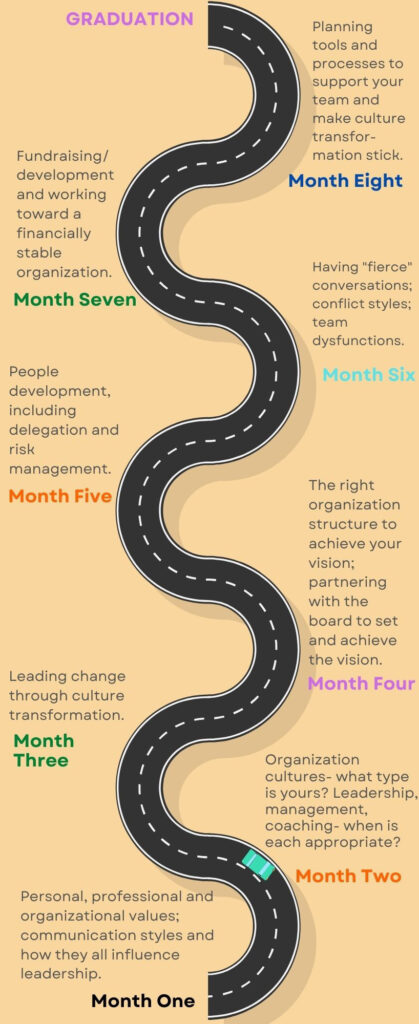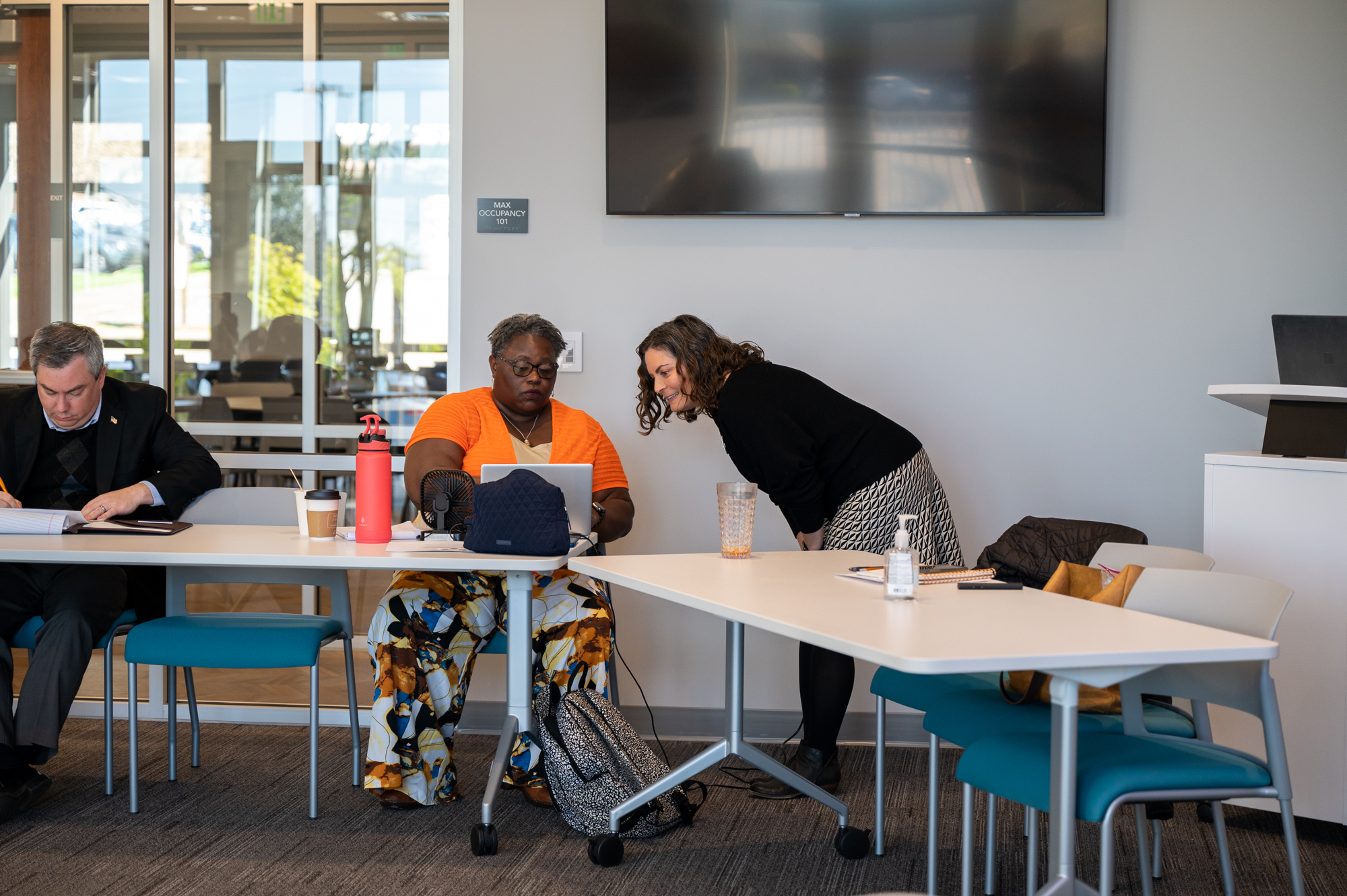Collaborative Learning
Why we invest in the development of high-impact change makers and the organizations they serve.
Why
In 2019, just before the pandemic began, the Mary Black Foundation chose to partner with Heightened Development to launch a yearlong institute for executive directors or chief executive officers (Executive Director Leadership Institute/EDLI). Of course, none of us had any idea what was coming or how important community and supportive professional development would be during this time.
Before talking about the institute, however, it is important to highlight why it matters. I love the term “change maker.” I am fully aware that the word “change,” at any given time, can make us more aware of the exhausted, uneasy feeling we sometimes have in the pit of our stomachs. That is valid, and I feel it too. Many of the leaders this institute invests in are facing the reality of exhaustion and uneasiness on a regular basis, and it is important to acknowledge why digging into change efforts matters, even if we don’t have the energy to go there all the time.

Nearly all of the nonprofit sector is about solving a problem that impacts humanity in one way or another. They solve problems that no one can turn a profit on. Almost always, it is a problem with deep complexity with many factors influencing it, and when one digs deeply into the root cause of the problem it seems entirely overwhelming. THIS is the job of a nonprofit executive who is also managing all of the typical challenges of a business (workforce development, managing risk, process improvement, budget management, etc.). These leaders are solving the most important problems of today. They are helping to build equity, to level the playing field, to improve our workforce, to improve well-being population wide. How could we not heavily invest in them?

What
This first institute began in March of 2020 and was a day long virtual format. We had no idea at the time that every gathering that year would be virtual. Sitting through a full day of “training” is difficult, even in-person, and much harder virtually. I remember wondering if it would be successful, but the leaders quickly forged supportive, open, relationships and were deeply engaged in each session.
At the end, one leader said, “I have been in this position for 20 years, and I have never participated in something that challenged my learning this much.” At graduation, another leader noted how she’d grown more comfortable with having conversations around difficult topics like employee accountability, racism, etc.
In 2022, the Mary Black Foundation supported a similar institute for “high potential leaders,” Most of these participants were chief operating officers or the second in charge at their impactful organizations. This year, we launched a new cohort of executive directors, and the Spartanburg County Foundation came on board to co-fund the institute with the Mary Black Foundation.
How
This year, similar to other years, we covered the important topics often devoting time to individualized planning during the sessions.
The institute design is influenced by findings from the Center for Creative Leadership and the Corporate Leadership Council, which show that effective leadership development is 70% on-the-job learning, 20% coaching and mentoring, and 10% classroom learning. Essentially, learning happens when adults are supported to apply it in their setting in real time. Certainly, the bulk of participant time is spent on the job, and the institute seeks to find ways to help participants reflect on field experience and apply their learning. The design utilizes peer coaching and also allows time for executive directors to begin applying the content and tools while in session.

A few quotes from high potential leaders at last year’s session were:
One of my favorite sessions focused on various communication styles and the behaviors that typically accompany those styles. I have become more aware and intentional about understanding these differences as I approach work and life experiences while continuing to self-reflect so that I can become a more effective leader.
— Savannah Ray, Spartanburg Academic Movement and United Way of the Piedmont
I feel more confident leading our organization towards success, and I have more clarity of my role. I want to motivate my team to perform better, to make better decisions and to reach their full potential.
— Nora Curiel-Munoz, PASOS SC and Upstate Family Resource Center
I have acquired an immense amount of training that will aid in sustaining my role as a leader. One of the things that I really enjoy is the peer-to-peer support (iron sharpens iron). It is not just a training for me; it’s a community. I have developed relationships with my cohort members to build partnerships to better serve Spartanburg County.
— Amber Pendergraph-Leak, BirthMatters
One thing that has truly impacted how I operate in the workplace was our discussion regarding the level of information that we have and are given regarding decision making and employee input. I believed this helped me as both an employee and as a leader. As an employee, it helped me realize and understand that just because I’ve been asked for my input does not mean that I get to make the final decision nor does it mean that I have all the information I need to make a final decision. As a leader, it helped me realize and understand different levels of transparency we as individuals all have.
— Channing Houser, GLEAM and PALS
Participation in the leadership institute led by Heightened Development has increased my knowledge of ways to coach staff and have those difficult, yet necessary, conversations with staff. As well as coaching staff to help maintain a healthy work relationship and environment.
— Rosalyn E. Splawn, First Steps of Spartanburg

This blog was written by Chamlee McGuire, founder of Heightened Development. For more information on all that Heightened Development offers to build nonprofit capacity, you may contact Chamlee at [email protected] or (864)542-4452.

